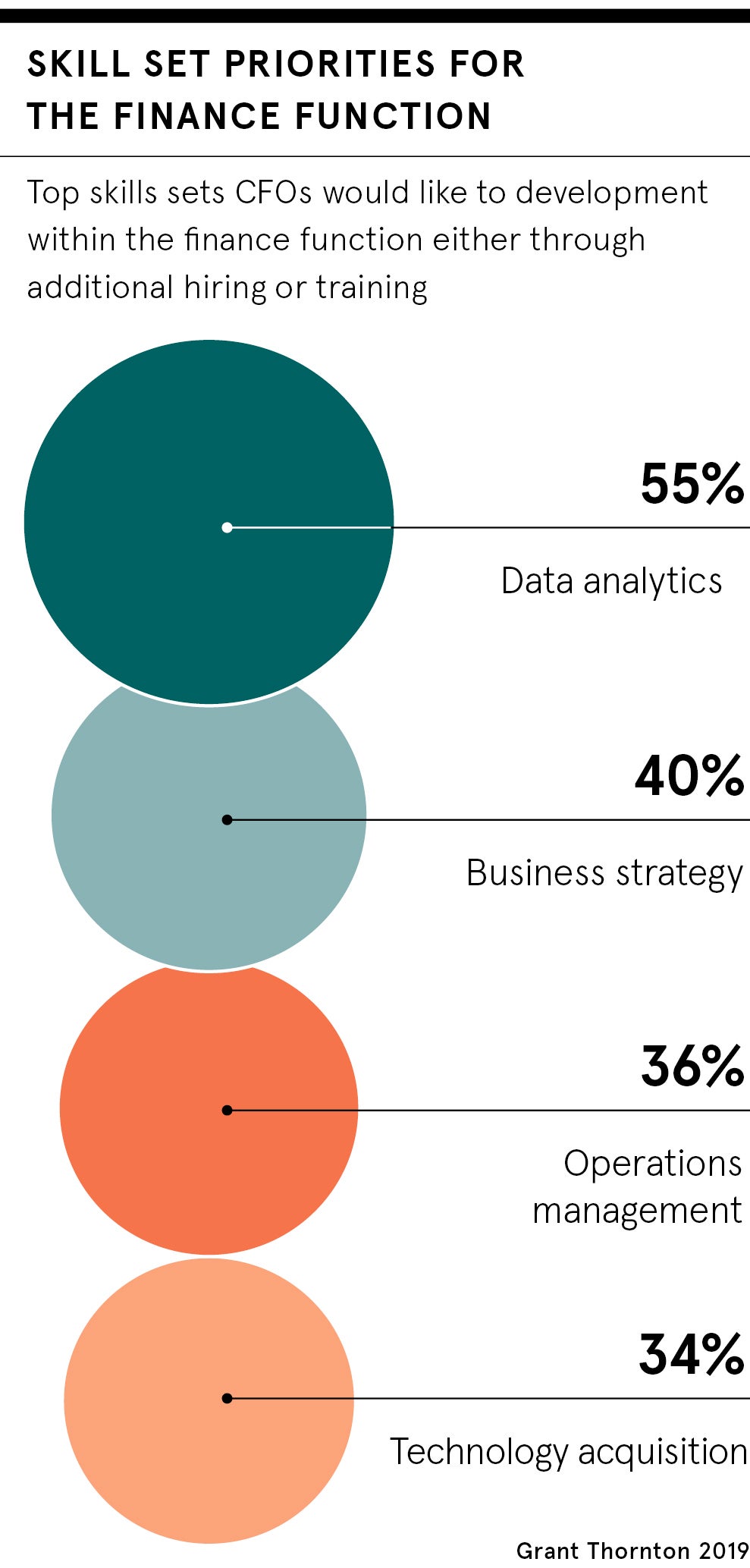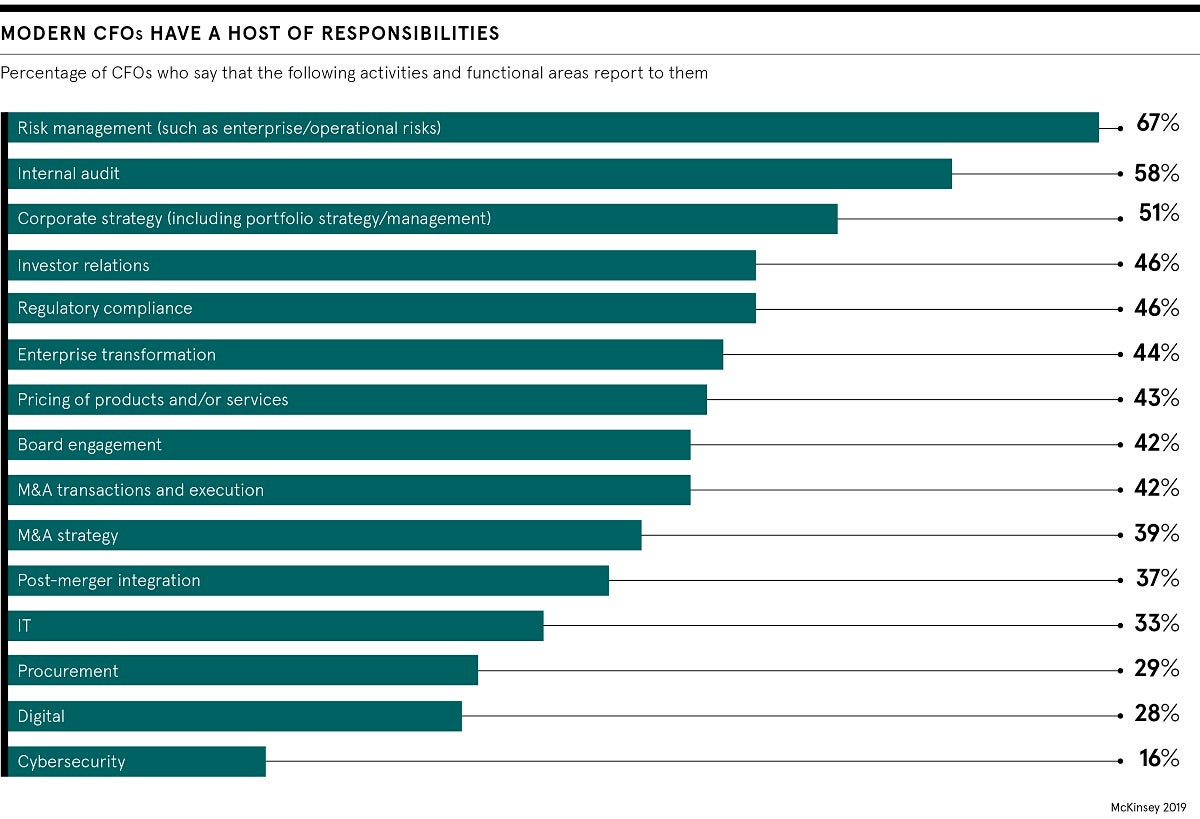Senior executives may need to rethink the responsibilities allocated to their chief financial officer (CFO). A role once seen as little more than the chief steward of spreadsheets, invoices and expenses is now tomorrow’s leader, using technology and advanced forecasting methods to plot a company’s path.
According to a report earlier this month by Deloitte, dramatically entitled The meteor is coming: the role of the private equity-backed CFO, investors are now expecting the CFO to be the figure who drives technological change, good governance and investment returns.
“From a traditional, backward-looking number cruncher, they want the role of the CFO to switch to a forward-looking chief value extractor, with sufficient vision to foresee and navigate the changes ahead and make the greatest contribution to value from day one,” explains Andy Halls, lead partner for Deloitte’s Private Equity-Backed Programme.
While this survey looked specifically at private equity-backed CFOs, the sentiment of a changing role is echoed throughout industry.
Peter White, CFO of Hyperoptic, a broadband provider employing more than 1,300 staff, says companies of all kinds are now repositioning the role of the CFO, right into the centre of the business.
“CFOs need to ensure they get involved in all aspects of decision-making,” he says. “Using data and insight to support decision-making helps a business to achieve its goals and ultimately this approach enables you to become a trusted partner who is invited to contribute.”
Mr White says today’s CFO is far less focused on the reporting of historical numbers and issues arising from compliance, accounts and taxation. Instead, the role of the CFO has an emphasis on future forecasting through the use of detailed historical analytics.
“CFOs have a wider remit with responsibility for key performance indicators, corporate drivers and analytics as well as for ‘lag’ financial reporting,” he says. “All aspects of the role are important to an organisation, but without a firm grasp and understanding of the day-to-day and near-term forecasts, the ability to add value to the long-term business plan will be severely restricted.”
Updating the CFO relationship status
As the role is evolving, so too is the relationship between the CFO, fellow executives and other departments within the organisation.
“The past ten to fifteen years has seen a significant rise in the value of the finance business partner,” says Jon Bell, CFO at PXP Financial. “There has been a realisation that finance professionals, who can combine strong analytical abilities, commercial acumen and ‘people’ skills, add some real value through effective and informed decision-making. Many organisations have taken the decision to embed these individuals into the day-to-day business.”
Technological advances have enabled finance directors to scrap the monthly management reports of old, replacing them with real-time interactive models, which all divisional managers can feed into. Potentially, this means organisations have a clearer picture than ever of any headwinds, which may challenge revenues, productivity and profitability.
“In a well-run organisation, the finance function should have created a clear roadmap for the operational and financial performance of the whole business that has been created collaboratively with all the other functions,” explains Robin Bryson, interim CFO at Impero Software.

“This puts the finance function at the heart or, arguably, the mind of the business from the outset, with many now being crowned as the ‘stewards’ of the long-term enterprise vision. They are also a key player in guiding different business areas to achieve short-term performance needs within the overarching narrative of long-term value creation.”
Senior managers agree that the role of the CFO is becoming increasingly cross-functional within businesses, with the finance chief being asked to lead on issues of change management and organisational transformation much more often.
“The CFO should be involved with every business function in a company, whether by direct report or via processes that require CFO planning, decision or sign off,” says Dominic Ward, CFO of datacentre provider Verne Global.
“The stereotype 1980s accountant CFO is no more. The key objective of any business is to grow financially and commercially. The two are tied intrinsically and cannot be targeted or achieved independently. Financial success leads to commercial success and vice versa.”
Embracing leadership in the role of the CFO
Deloitte’s report involved interviewing more than 100 investors, chief executives, chairmen and women, and CFOs. It concluded that the modern CFO must be a leader, with responsibility for “determining strategic business direction, M&A, financing, capital market and longer-term strategies vital to the future of the company”.
This demanding checklist means CFOs are certainly growing in importance to businesses with a global presence. Virpy Richter, CFO of affiliate network Awin, says those taking the role of the CFO have had to adapt.
She explains: “Technology has essentially granted CFOs more time to become practically involved in all facets of a company, and the importance of taking budgeting and forecasting into account when making business decisions has meant this is necessary.
“While everything from customer relationship management to marketing campaigns are not necessarily the responsibility of the CFO, it is likely their advice will influence any decisions made on these matters.”

That a senior decision-maker from the finance function is being encouraged to take part in the decisions made by the marketing and communications team shows how modern approaches link all activities back to shared corporate targets.
“I suppose the benefits of this approach mean that every decision is made with a financial thought process, so ventures can be rated on their profitability and practicality,” says Ms Richter.
Marie Myers, CFO at UiPath, calls this “instilling a return-on-investment approach”. She says the reasons for integrating a CFO into the core of the business need to be explained to all stakeholders if future interactions are to be successful.
“By having everyone work together more holistically and focusing on efficiency, effectiveness and experience, business results will be stronger and improve the bottom line,” Ms Myers concludes. “The challenge is how to be much more collaborative, team oriented and innovative. We have to break down the silos and help people connect the dots.”
Updating the CFO relationship status

Embracing leadership in the role of the CFO

